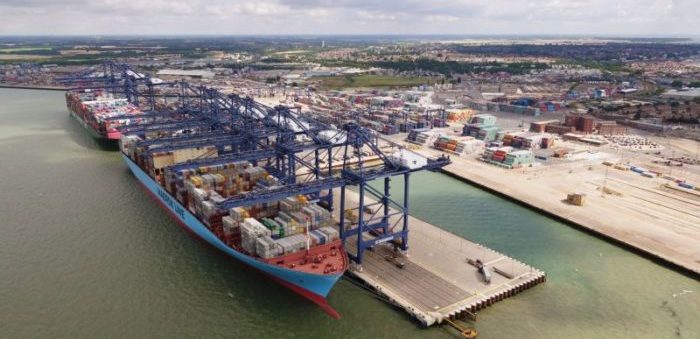Providing renewable electricity to ships while they are at berth in UK ports has the potential to reduce the equivalent of 1.2 million diesel cars worth of nitrogen oxides pollution and bring £402 million per year of health and environmental benefits.
According to a report by Ricardo Energy and Environment for Schneider Electric, by plugging into the power grid with 100% renewable electricity and turning off their diesel engines, ships at berth in the UK can reduce emissions equivalent to 84,000 to 166,000 diesel buses – or 1.2 million diesel cars.
[smlsubform prepend=”GET THE SAFETY4SEA IN YOUR INBOX!” showname=false emailtxt=”” emailholder=”Enter your email address” showsubmit=true submittxt=”Submit” jsthanks=false thankyou=”Thank you for subscribing to our mailing list”]
Offshore supply vessels, fishing boats, Ro-Ro, bulk carriers and passenger ferries contribute the most to the emissions from auxiliary engines at berth. The emissions from all vessels’ auxiliary engines at berth in UK ports in 2016 is estimated to be equivalent to nearly 2.6 per cent of the total transport sector emissions of nitrogen oxides in the UK. The best estimates of these emissions from auxiliary engines are 830,000 tonnes of carbon dioxide, 11,000 tonnes of nitrogen oxides (NOx), 270 tonnes in particulate matter and 520 tonnes of sulphur dioxide.
The study found that ships’ auxiliary engines at berth are equivalent to the nitrogen oxides and particulate matter emissions equivalent to 84,000 to 166,000 buses and coaches representative of those currently in the UK fleet.
Finally, the UK could avoid a major health hazard as well as health and environmental impacts of up to £402 million per year through the elimination of nitrogen oxides, sulphur dioxide and particulates, using shore connections at UK ports. If all the emissions from the auxiliary engines at berth from these vessels were reduced to zero, the value in reducing emissions would be between £136 million and £483 million per year.
For more information click in the PDF herebelow































































